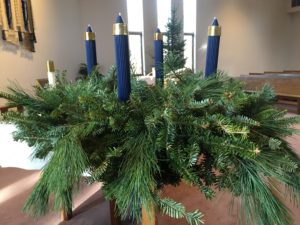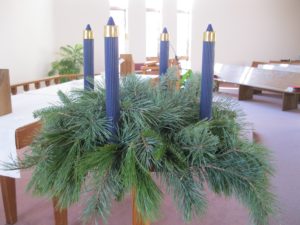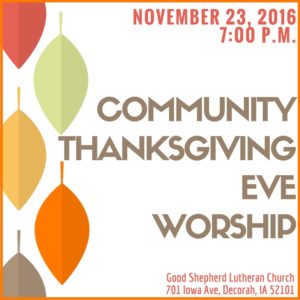Tuesday, November 29
7:00 p.m. – CLA Circle Meeting, Ann Naslund hosts
Wednesday, November 30
7:30 a.m. – Men’s Breakfast
5:30 p.m. – Advent Prayer Service
6:00 p.m. – Nominating Committee- Pastor’s office
6:00 p.m. – Handbell Choir
7:00 p.m. – Choir Rehearsal
8:00 p.m. – Band Rehearsal
Thursday, December 1
10:00 a.m. – Adult Bible Study with Pastor Amy
1:30 p.m. – Property and Management Committee Meeting
5:00 p.m. – Community Meal at First Lutheran
Sunday, December 4
8:45 a.m. – Handbell Rehearsal
9:30 a.m. – Worship with Holy Communion
10:30 a.m. – Fellowship Hour
10:45 a.m. – Sunday School/Confirmation






